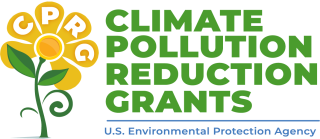States of North Carolina, Maryland, and South Carolina, and the Commonwealth of Virginia

On this Page:
Overview
| Anticipated Award Amount | $421,238,074 | |
|---|---|---|
| Coalition | Lead Applicant: North Carolina Department of Natural and Cultural Resources Coalition Members: South Carolina Office of Resilience, Maryland Department of the Environment, Virginia Department of Environmental Quality |
|
| Application Title | The Atlantic Conservation Coalition | |
| Sector | Agriculture and Natural and Working Lands | |
| Estimated GHG Reductions 1 |
Cumulative 2025‑2030: Cumulative 2025‑2050: |
|
Selected Application Summary
The selected application will support Maryland, North Carolina, South Carolina, and Virginia in their initiative to protect and restore high-carbon polluted coastal habitats and peatlands and manage the protection, use, and restoration of forested land. The Atlantic Conservation Coalition will promote coastal resilience and sustainable forestry management practices. The grant will fund 21 implementation-ready projects focused on restoring coastal habitats and forests through reforestation, land revitalization, and the planting of native species and trees, thereby enhancing natural carbon sinks. Collectively, these projects will benefit low-income and disadvantaged communities across a range of coastal areas, Tribal communities, and rural communities.
Key Things to Know
Based on information provided by the applicant, the selected project will deliver the following benefits to reduce greenhouse gases and support communities 1:
-
Protect and restore 33,000 acres of carbon-rich peatland and coastal wetlands in North Carolina and Virginia.
-
Restore native ecosystems by planting 217,700 trees and 4,800,000 native wetland species in Maryland.
-
Enhance biodiversity by reforesting 55,000 acres of land in North Carolina.
-
Improve the management of 93,000 acres in the Appalachians and bottomland forests of South Carolina, Virginia, and Maryland.
-
Restore 10,000 acres of shorelines and habitats in Virginia and 10,000 acres of forests, current or future coastal habitats, or agricultural lands in Maryland
-
Improve water quality of the Chesapeake Bay and other waterways by reducing soil runoff and nitrogen pollution.
-
Reduce risk of flood, wildfire, and extreme heat that disproportionately impacts vulnerable communities.
Activities in the selected application reflect measures in North Carolina’s Priority Climate Action Plan (pdf) (7.1 MB).
1 The emission reduction estimates, as well as the descriptions of measures and benefits, were summarized from information provided by the applicant. These estimates, along with the award amount, are subject to change.
EPA will award grants to selected applicants once they meet all legal and administrative requirements. As of July 2024, grants are expected to be awarded by the end of 2024.
About EPA's Climate Pollution Reduction Grants (CPRG) Implementation Grants
Authorized under the Inflation Reduction Act, EPA’s CPRG program will provide nearly $5 billion in grants for states, local governments, Tribes, and territories to develop and implement ambitious plans to reduce greenhouse gas emissions and other harmful air pollution while benefitting low-income and disadvantaged communities.
For more information, visit Climate Pollution Reduction Grants.
